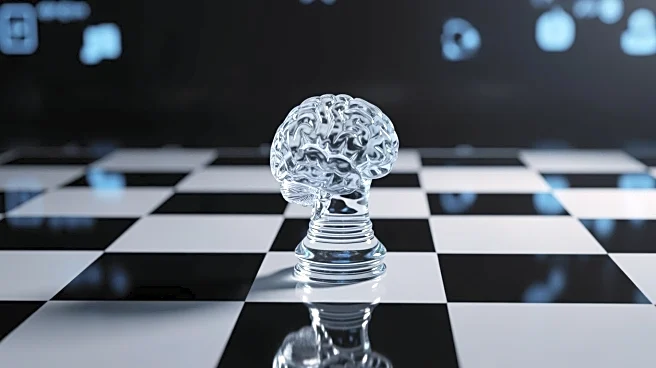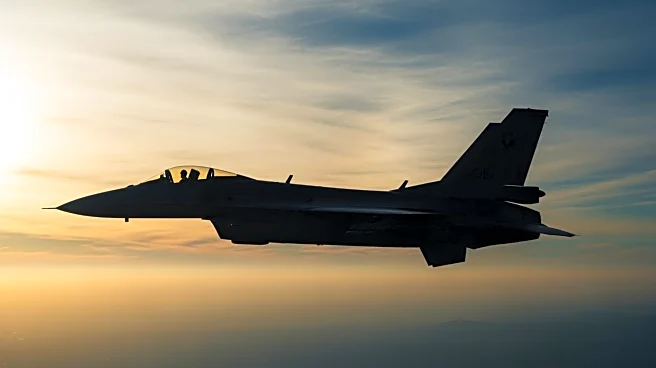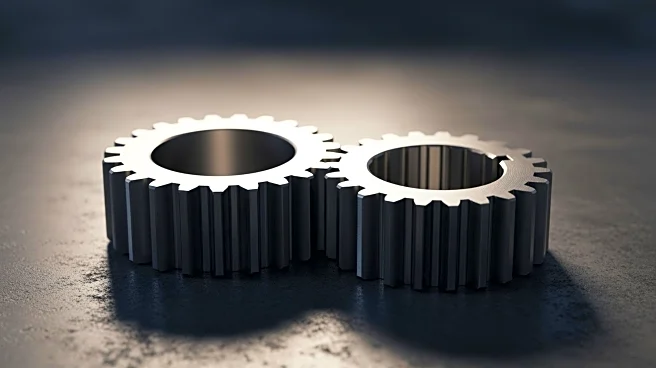In an unprecedented move, Netflix has embraced generative artificial intelligence in its Argentine sci-fi series, "The Eternaut." This innovative use of technology has enabled the streaming giant to produce
Did You Know
Your taste buds have a lifespan of about 10 to 14 days, after which they are replaced.
?
AD
a striking visual effects sequence that depicts a building’s dramatic collapse at a remarkable pace—ten times faster than traditional methods. Co-CEO Ted Sarandos hailed this milestone during an earnings call, showcasing AI as a transformative tool that enhances content creation. As the industry ventures further into uncharted territories, Netflix positions itself at the forefront of this technological evolution.
While the excitement surrounding AI's potential benefits is palpable, the decision has not been without its detractors. Fans and industry experts alike have voiced concerns about the impact of artificial intelligence on artistic integrity. The use of AI in "The Eternaut" raises challenging questions about the future of creativity in filmmaking and the job security of artists. Many fear that reliance on technology could overshadow human creativity, leading to a homogenized vision that prioritizes efficiency over originality. This tension between innovation and tradition is palpable as audiences grapple with the implications of these advancements.
Despite the ongoing debate, "The Eternaut" has garnered significant critical acclaim, boasting impressive ratings on platforms like Rotten Tomatoes and a dedicated fan base. This duality—celebrating technological progress while preserving artistic values—captures the essence of contemporary entertainment. As Netflix seeks to redefine the landscape of storytelling, the path forward remains enigmatic. The integration of AI into their productions not only showcases creative possibilities but also sparks a broader dialogue about the future of film and the role of human artistry in an increasingly automated world.
Q&A (Auto-generated by AI)
What is generative AI in filmmaking?
Generative AI in filmmaking refers to the use of artificial intelligence algorithms to create or enhance visual content, such as special effects, animations, or even entire scenes. This technology enables filmmakers to produce complex visuals more quickly and efficiently, often reducing production costs. For instance, Netflix's use of generative AI in 'The Eternaut' allowed for the rapid generation of a scene depicting a building collapse, showcasing how AI can streamline the creative process.
How does AI impact artistic jobs?
The integration of AI in filmmaking raises concerns about its impact on artistic jobs. While AI can enhance productivity and creativity, it also poses risks of job displacement for artists and technicians. As seen with Netflix's use of AI in 'The Eternaut,' there is anxiety in the creative community about AI replacing traditional roles in visual effects and storytelling, potentially undermining the value of human creativity in the arts.
What are the ethical concerns of AI in media?
The ethical concerns surrounding AI in media include issues of authorship, originality, and the potential for bias in AI-generated content. There are fears that reliance on AI could dilute the artistic integrity of films and shows, as decisions may be driven more by algorithms than by human creativity. Additionally, the use of AI raises questions about accountability when it comes to content that may unintentionally perpetuate stereotypes or misinformation.
How has AI been used in past films?
AI has been employed in various capacities in past films, primarily in visual effects and animation. For example, AI algorithms have been used to create realistic CGI characters, enhance visual effects, and even assist in scriptwriting. Notably, films like 'The Irishman' utilized AI for de-aging actors, showcasing the technology's potential to revolutionize traditional filmmaking techniques and enhance storytelling.
What are the benefits of AI in production?
The benefits of AI in production include increased efficiency, cost savings, and enhanced creative possibilities. AI can automate repetitive tasks, such as editing and visual effects creation, allowing filmmakers to focus on storytelling. In the case of 'The Eternaut,' AI enabled the completion of a complex scene ten times faster than traditional methods, illustrating how AI can expedite production timelines and improve overall workflow.













